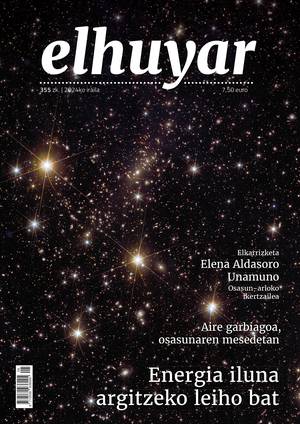The brilliance of scientific expeditions
A boat and a passion to discover, describe and understand the world. Neither in the Enlightenment, nor now, these ideals are the only components and motivations of great scientific expeditions and, of course, a scientific expedition is not something obligatory on board, but if we asked any of us, it would not be far from that phrase the image that would be created in our heads. Despite the fact that he spent time on great trips like Darwin's, the brilliance of scientific expeditions has not been extinguished: neither for scientists nor for the public.
In this issue we gather the experience of two researchers who have participated in modern scientific expeditions. One, just off the ship, is in full force to analyze, classify, compare and cross everything received. The second, it has been several years --five - studying, classifying, comparing and crossing the collected in a trip of these characteristics. And it is not over, much less, the research work that, with samples, with data back home, will bring true scientific value to the expedition. Giant research work.
The recent Malaspina expedition, for example, has received nearly 200,000 samples during the nine months of the expedition, almost three times more than expected. This is a lot of impressive work that, if scientifically serious, must be done and financed. If not, to turn the expedition into knowledge without laboratory trips, because the money would be spent on fireworks: they are brilliant, but they run out quickly, and that is not the kind of brightness that should have the expeditions made in the name of science. However, the resources for this journey that begins when you return home are much scarcer. However, the flash condemned to wait in the boxes does not generate knowledge, but, in addition, only harms the credibility of the search, description and understanding of the world.






